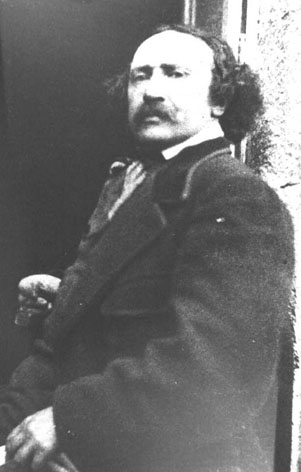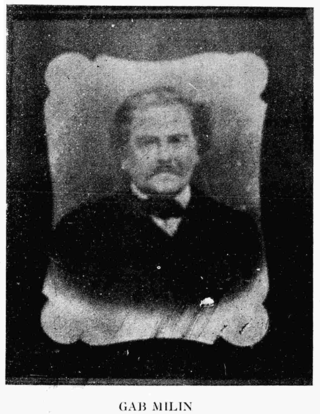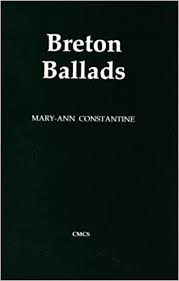Donatien Laurent | |
|---|---|
 | |
| Born | 27 September 1935 |
| Died | 25 March 2020 (aged 84) |
| Nationality | French |
| Occupation | Musicologist Linguist |
Donatien Laurent (27 September 1935 – 25 March 2020) was a French musicologist and linguist. [1]
Donatien Laurent | |
|---|---|
 | |
| Born | 27 September 1935 |
| Died | 25 March 2020 (aged 84) |
| Nationality | French |
| Occupation | Musicologist Linguist |
Donatien Laurent (27 September 1935 – 25 March 2020) was a French musicologist and linguist. [1]
Donatien was born in Belfort to polytechnician Pierre Laurent and a musician mother from Nantes. During his secondary education in Paris, he discovered Breton culture. [2] He joined the Bleimor Scouts and became a bagpiper. [3] He joined his friend Herri Léon in a program at the College of Piping in Scotland. The two friends revolutionized the bagpipe in the bagadoù, which would create conflicts with Bodadeg ar Sonerion. [4]
As part of his interest in Breton music, Laurent accompanied his friends as a teenager to Paris to make sound collections of music from Bro Gwened. His first solo recording came in the summer of 1956 in Le Conquet on his brother's tape recorder. After a serious accident the following year which left him in a coma for 18 days, Laurent was declared by doctors unfit to continue studies. Therefore, he devoted himself to research on Breton culture. [5] He was licensed to conduct research by Paris-Sorbonne University under the supervision of André Leroi-Gourhan. Later, Gourhan offered to help Laurent conduct research in Plozévet in 1964. During his time in Plozévet, Laurent met a descendant of Théodore Claude Henri, vicomte Hersart de la Villemarqué at the Manoir de Keransquer.
In 1965, Laurent met his eventual wife, Françoise Prigent. [6] She actively supported him during his writing of Sources de Barz. [7] With La Villemarqué's descendant, Laurent was able to obtain many original collections of notebooks which helped in the writing of Barzaz Breiz . Laurent used these works to aid his thesis, written in 1974.
Laurent directed the Center for Research on Breton and Celtic (CRBC) and the University of Western Brittany for twelve years. In 2015, Dastum, alongside the CRBC and Laurent, created an online platform for his works, including 136 surveys conducted between the 1950s and the 1970s. [8]
Donatien Laurent died on 25 March 2020 in Brest at the age of 84. [9] [10]
In 2010, Laurent was distinguished by the Cultural Institute of Brittany for his work, and received a medal from the Order of the Ermine. [11]
In 2014, the Jardin Donatien-Laurent was established in Locronan. [12] [13]

Barzaz Breiz is a collection of Breton popular songs collected by Théodore Hersart de la Villemarqué and published in 1839. It was compiled from oral tradition and preserves traditional folk tales, legends and music. Hersart de la Villemarqué grew up in the manor of Plessix in Nizon, near Pont-Aven, and was half Breton himself.

Breton literature may refer to literature in the Breton language (Brezhoneg) or the broader literary tradition of Brittany in the three other main languages of the area, namely, Latin, Gallo and French – all of which have had strong mutual linguistic and cultural influences.

Théodore Claude Henri, vicomte Hersart de la Villemarqué was a Breton philologist and man of letters.

François-Marie Luzel, often known by his Breton name Fañch an Uhel, was a French folklorist and Breton-language poet.

Yann-Fañch Loeiz Kemener was a traditional singer and ethnomusicologist from Brittany, born in Sainte-Tréphine, Côtes-d'Armor, France. Known in French as Jean-François Louis Quémener.
Maurice Duhamel was the pen-name of Maurice Bourgeaux, a Breton musician, writer and activist who was a leading figure in Breton nationalism and federalist politics in the years before World War II.

Nolwenn Korbell, is a French Breton singer-songwriter and actress. Best known for her songs in Breton, with her musicians or in a duet with guitarist Soïg Sibéril, she released four albums, regularly performs in concerts, and also keeps acting in plays and films.

Joseph Loth was a French linguist and historian who specialised in the study of Celtic languages.

The Pontcallec conspiracy was a rebellion that arose from an anti-tax movement in Brittany between 1718 and 1720. This was at the beginning of the Régence (Regency), when France was controlled by Philippe II, Duke of Orléans during the childhood of Louis XV. Led by a small faction of the nobility of Brittany, it maintained links with the ill-defined Cellamare conspiracy, to overthrow the Regent in favour of Philip V of Spain, who was the uncle of Louis XV. Poorly organised, it failed, and four of its leaders were beheaded in Nantes. The aims of the conspirators are disputed. In the 19th and early 20th century it was portrayed as a proto-revolutionary uprising or as a Breton independence movement. More recent commentators consider its aims to have been unclear.

François Eliès, born Fañch Eliès and better known by the pseudonym Abeozen, was a Breton nationalist, novelist and dramatist who wrote in the Breton language. Abeozen was also a noted scholar of the Welsh language.

Jean François Marie Le Gonidec de Kerdaniel was a Breton grammarian who codified the Breton language.

Annie Ebrel is a traditional Breton singer of traditional Kan ha diskan and Gwerz (ballads).
"An Alarc'h" is a Breton traditional song. It is found in the 1839 collection Barzaz Breiz. It tells of the return from exile in England of the Breton prince Jean de Montfort and his defeat of the French army under Bertrand du Guesclin in 1379. It has been recorded by, amongst others, Alan Stivell and Gilles Servat.

Patrick Malrieu was a French industrial executive and a Breton music historian.
"Gwerz Skolan" is a gwerz with a long tradition in Lower Brittany, especially Léon-Trégor and Cornouaille. Its story is found in Old Welsh texts also, and the oldest extant Welsh version is found in the 13th-century Black Book of Carmarthen. The poem is cited as evidence for the preservation in Brittany of cultural memories and traditions predating the entrance of Bretons into Brittany. The gwerz was performed in Brittany until the 19th century, with some late examples from the 20th century. Its content describes a man who had died after living a life of rape and murder, and now comes back from hell to ask for forgiveness.

Jean-Yves Veillard was a French historian.

"Ar rannoù", also known as "Gousperoù ar raned", is a traditional Breton folksong, composed in twelve parts or "series".

Gabriel-Jean-Maie Milin or Gab Milin was a poet, folklorist and philologist writing in the Breton language, sometimes under his bardic name, Laouenan Breiz. He was also a naval clerk and mayor of the Île de Batz.

Breton Ballads is an academic monograph by Mary-Ann Constantine, published in 1996. The book includes examples of the Breton ballad known as the gwerz, and follows their history, and that of scholarship on the genre, into the 19th and 20th centuries. It was awarded the Katharine Briggs Prize by The Folklore Society in 1996.

Andrée Le Gouil, known by her stage name Andrea Ar Gouilh, is a French singer.